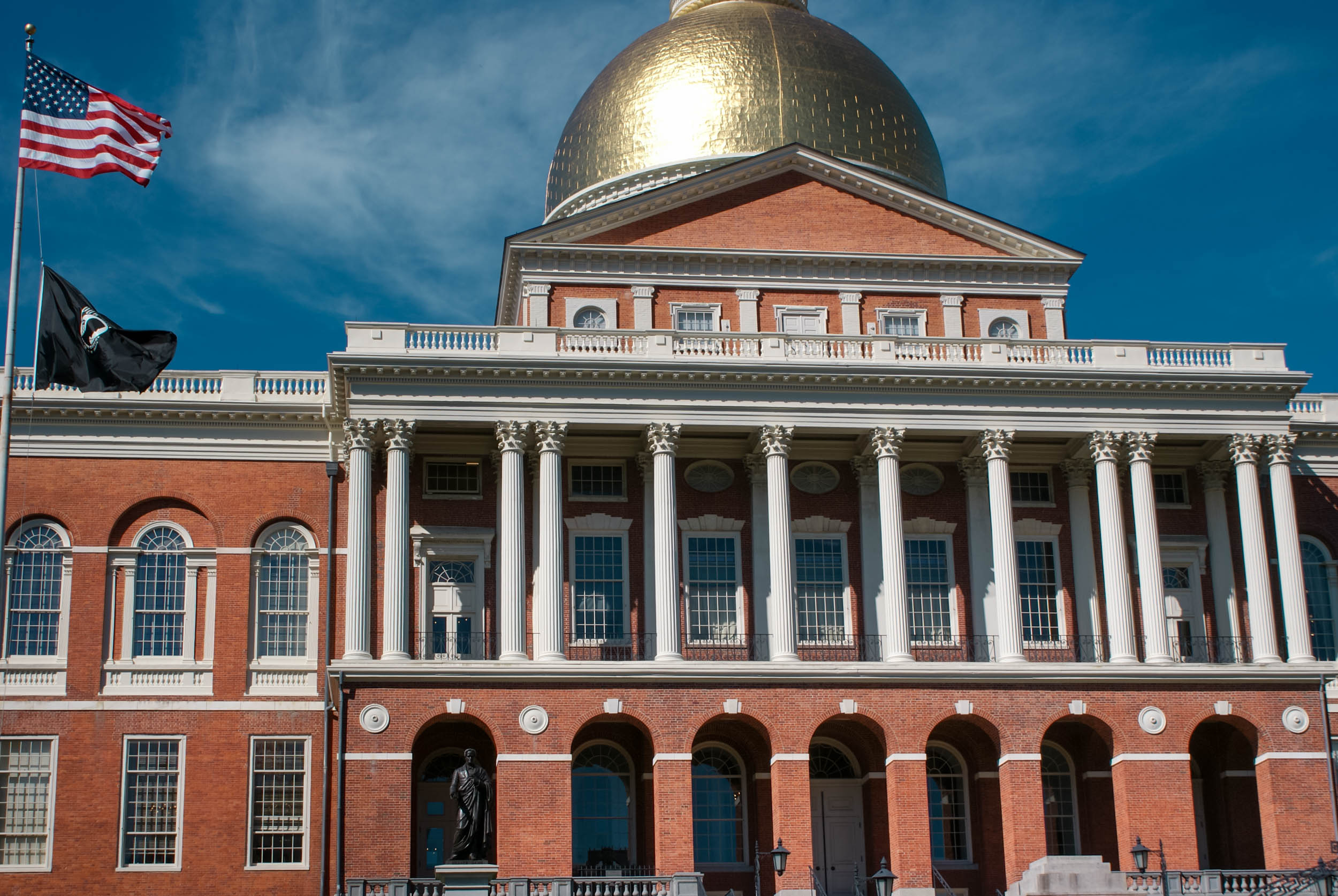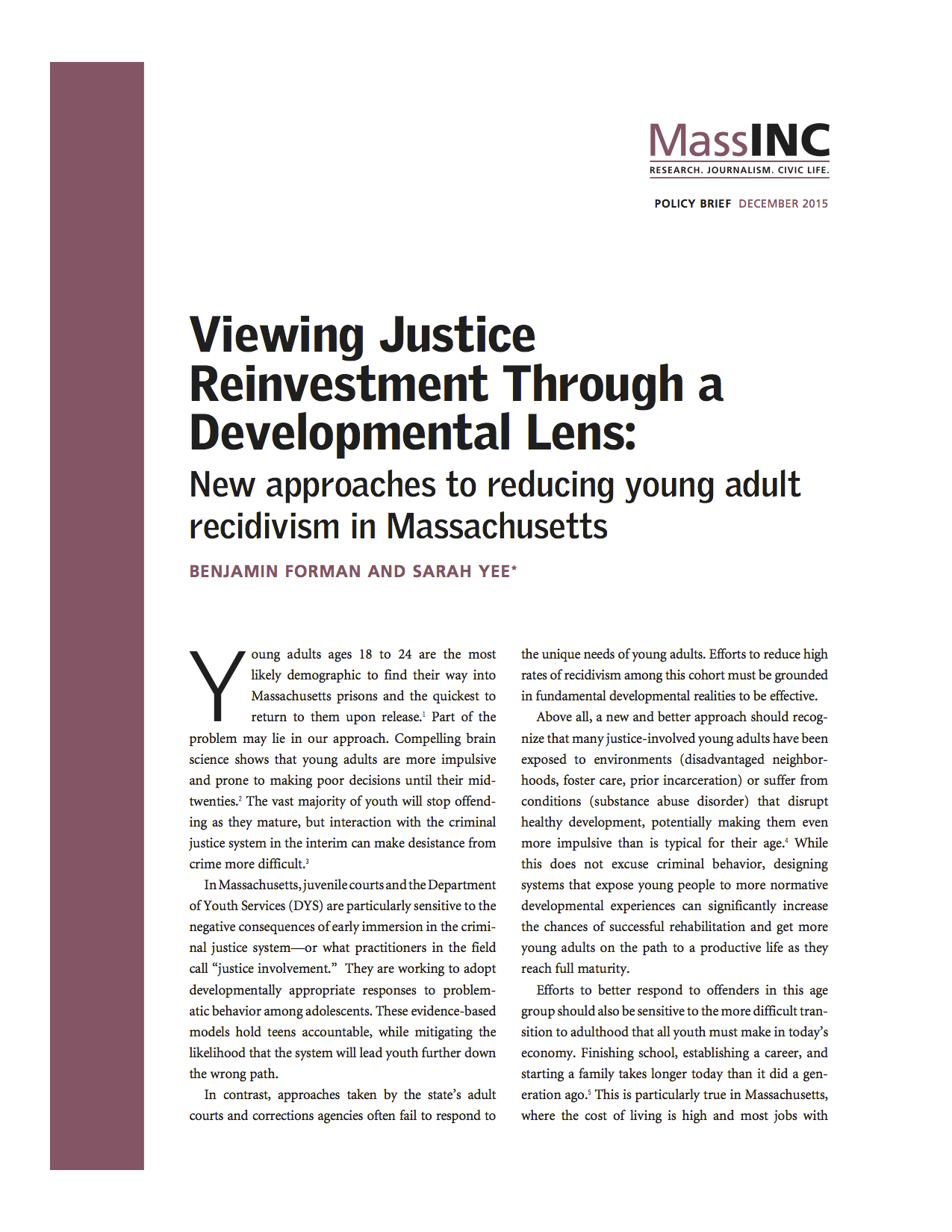
While the final score of Super Bowl LII left us with heartbreak, the team made one play last week that may give us an even more significant victory.
In a Boston Globe op-ed that ran Sunday morning, team leadership took a clear stance on criminal justice reform, writing: “We strongly support the proposal being considered by the Massachusetts Legislature that would first raise the lower age of juvenile jurisdiction from 7 to 12, and raise the upper age from 18 to 19.”
A 2015 MassINC policy brief reviewed the extensive research base for such a change. Over the past few years, advocacy groups, with Citizens for Juvenile Justice and ROCA in the lead, pushed to see these provisions added to comprehensive criminal justice reform legislation. Raise the age made it into the bill the Senate passed in October, but it was not included in the House version, so the matter now rests with the conference committee reconciling the two bills.
Devin McCourty authored the Globe piece, alongside owners Jonathan and Robert Kraft. McCourty is a member of The Players Coalition, a group organized last fall after the national anthem protests. The Coalition negotiated an agreement with the league to direct $90 million to social justice causes over the next 7 years.
Some have criticized the deal as an empty overture to tamp down the protests and protect the business of football, but with actions like these, it seems like players and owners are really working together to find ways to confront racial inequities at the root of so much division on and off the field.
Will it make a difference? Well, just look at the comments section from an earlier piece in the Globe’s Ideas section drawing attention to the developmental science and making the case for raising the age. Now take a look at how readers have reacted to McCourty and the Krafts.
The CSG analysis showed us that people of color are particularly over-represented in our criminal justice at young ages. Reporting by Commonwealth’s Michael Jonas reveals how unequipped the adult systems is to handle these youth. In sports it’s easy to second-guess, but on policy the Patriots are spot on. Raising the age would afford these young people the opportunity to access the services and support they need to get out of the criminal justice system and should absolutely be a component of the long-term solution addressing racial and economic disparities in our Commonwealth.
Here in Massachusetts
Fentanyl is banned from state courtrooms, including use as evidence.
Bristol County Sheriff Thomas Hodgson faces a lawsuit from prisoner advocacy groups on the behalf of mentally ill inmates.
Boston Mayor Marty Walsh vows to get to the bottom of “uncharacteristic” violence.
Mass. high court rules that judges must consider the sentencing recommendations offered in victim impact statements in handing down sentences in criminal cases.
Ursula Ward, mother of murder victim Oden L Lloyd, testifies on Beacon Hill in support of a bill that will prevent any inmate from vacating a conviction through suicide.
Rolling Stone publishes a deep-dive into the Farak and Dookhan drug lab scandals.
A Restorative justice program, called RISE, offers adult defendants convicted of serious crimes a second chance.
Other States
Illinois reduces its prison population through system-wide reforms.
A bipartisan coalition forms in Tennessee in pursuit of criminal justice reform.
A trio of criminal justice reform bills aimed at reducing the penalties for low-level criminal offenses advance in the Florida legislature.
The Koch Network pours $4 million into a new partnership with the Texas think tank that led the Right on Crime movement.
In Washington
President Trump promises to help ex-prisoners get a “chance at a second life”.
The Justice Department revokes 25 executive guidelines, including an Obama-era memo that urged local judges to refrain from burdening poor defendants with fines and fees.
From the Media
The Hill looks at state laws that deny licenses for individuals with criminal records.
A warehouse wall becomes a collection of messages designed to reach the inmates in the Metropolitan Detention Center in Brooklyn.
At a state prison near Indianapolis, filmmakers and corrections officials make a prison movie using inmates and guards, in what is called an unprecedented attempt to humanize the wrld of confinement.
From the Researchers
Research from The PEW Charitable Trust show felony conviction rates rising sharply and unevenly in states across the U.S. In Massachusetts, 8.6 percent of residents had a felony conviction in 2010, up from 3.2% in 1980.
A new Colombia University Justice Lab report looks at how criminal justice reform more effectively combat the drug epidemic among emerging adults in Massachusetts.
A poll conducted by Robert Blizzard finds that 76% of Americans surveyed believe that the country’s criminal justice system needs significant improvements.
A report from the Crime and Justice Institute shows that Florida’s prison population will increase if lawmakers do not take action.
New research from the Annual Review of Criminology confirms there is virtually no link between immigration rates and crime.
The Vera Institute looks at whether mentoring can take the place of punishing.

